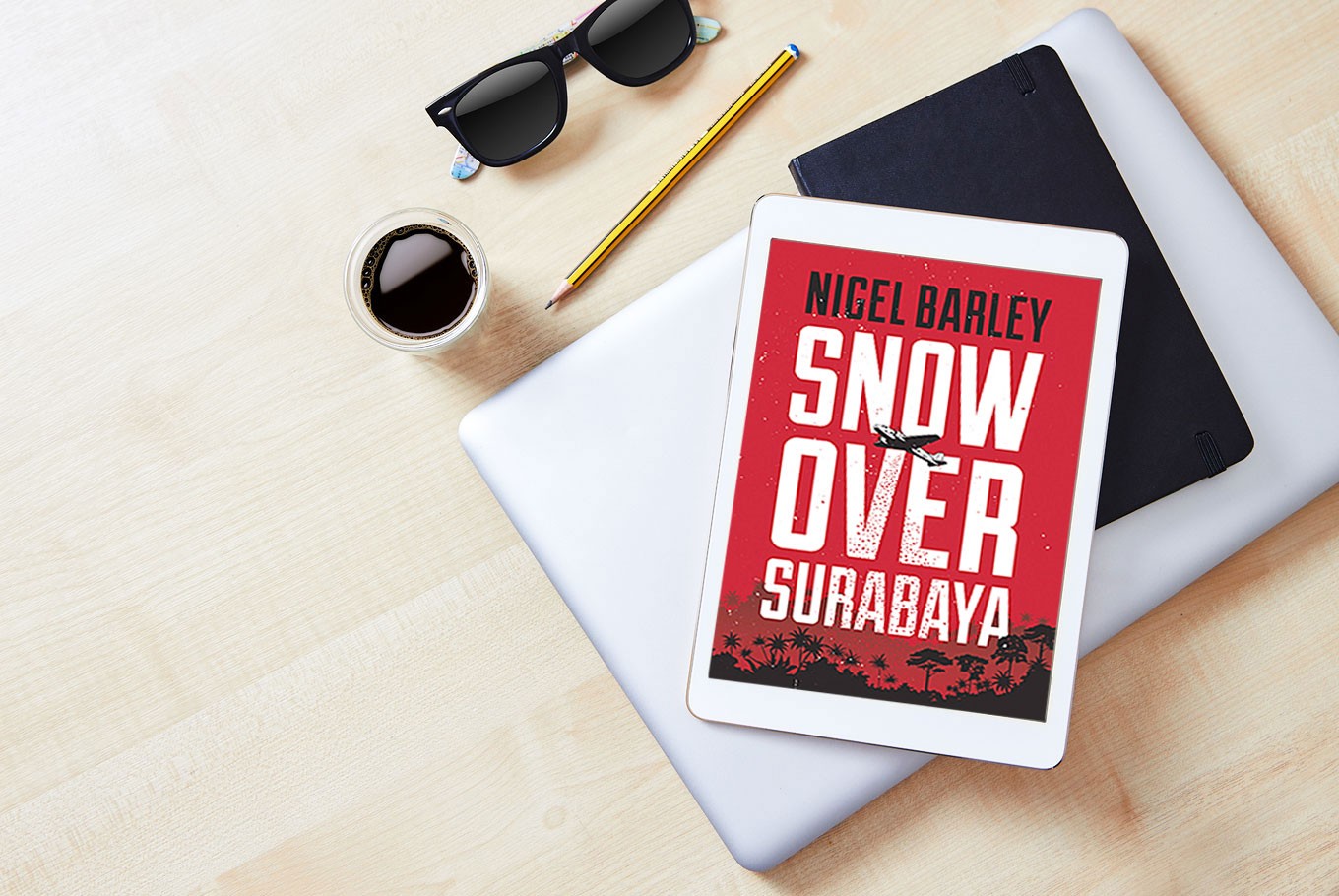Popular Reads
Top Results
Can't find what you're looking for?
View all search resultsPopular Reads
Top Results
Can't find what you're looking for?
View all search resultsSnow Over Surabaya informative, entertaining work on Indonesia’s struggle for freedom
When Nigel Barley’s latest offering, Snow Over Surabaya, hit the Indonesian bookstores sometime last month, my heartbeat quickened just a little.
Change text size
Gift Premium Articles
to Anyone
B
arley’s witty and well-researched writing on the histories and cultures of Indonesia and the region never fails to entertain and inform. Snow Over Surabaya, published by Monsoon Books, does not disappoint.
In 224 pages of elegant prose, Barley takes us on a high adventure through the muddle and murk of Indonesia’s struggle for independence. Independence wars are often messy affairs, and this one was no exception.
In Snow Over Surabaya we find a country in disarray after World War II.
Among the various elements vying for the upper hand in both military and political arenas, we meet bloodied Indonesian nationalists, Islamists and communists; youthful romantics, idealists and opportunists; ambivalent Indian Gurkhas fighting for the British, Australian trade unionists siding with the Indonesians; and remnant Japanese forces fighting with the Dutch.
Along with Indonesian revolutionary heroes — Soetomo, Sukarno and Mohammad Hatta – we meet a foppish Dutch spy, a sadistic American agitator, a clownish pair of British intelligence agents in Singapore, a crafty Chinese fence in Jakarta and, of course, the star of the show, Muriel Stuart Walker, aka Manxi, K’Tut Tantri or Surabaya Sue — a larger-than-life character who breezes through the whole shebang, somehow surviving on a heady mix of brash wit and good luck.
The book reads a bit like a British caper story, a comedy of errors, The Italian Job goes east.
The real-life Muriel Stuart Walker was born in Glasgow, Scotland, in 1898. She spent some time in the United States, but fled Hollywood and her American husband to start a new life in Bali.
After running a small hotel and flirting with a Balinese prince, she became embroiled, first in the Japanese occupation of Indonesia during World War II, and then in the Indonesian independence war that followed.
She is best remembered for her work as a radio broadcaster for the Indonesian Republicans during the struggle. Western foreign correspondents knew her as Surabaya Sue. She died in a nursing home in Sydney, Australia, in 1997.
K’Tut Tantri’s memoirs were published in a book called Revolt in Paradise ( 1960 ). Her story is an odd mix of fact and fantasy, which Australian academic, Tim Lindsey, set out to unravel in his book, The Romance of K’Tut Tantri and Indonesia ( 1997 ).
Notwithstanding her colorful character and the fanciful nature of much of her book, the Indonesian diplomat, Suryono Darusman, confirmed key points of her story in his own memoir, Singapore and the Indonesian Revolution, 1945-50 ( 1992 ).
K’Tut Tantri’s story provides the basis for Barley’s novel, Snow Over Surabaya. The author describes his work as, “Although it deals with real events, this is largely a work of fantasy, provoked by another work of fantasy that it may well bring closer to the truth.”
We do know that K’tut Tantri worked as a broadcaster for the Voice of Free Indonesia and as a speechwriter for president Sukarno. She also travelled to Singapore and Australia to publicize the Indonesian republican cause.
Notwithstanding these contributions to the nationalist cause, she was, according to Darusman, something of an embarrassment to the Indonesians, with her “unorthodox lifestyle and her exaggerated claims for attention.”
This is not the first time that Barley, a seasoned anthropologist and historian, has mixed fact and fantasy to produce an historical novel based in Indonesia.
In Island of Demons ( 2009 ), he gives Walter Spies a similar treatment. Spies was a Russian-born, German painter who lived in Ubud, Bali, in the thirties and played host to such luminaries as anthropologist Margaret Mead, artists Miguel Covarrubias and Rudolf Bonnet, writers Vicki Baum and Noel Coward, and actor Charlie Chaplin.
Sir Stamford Raffles is given a rather more sober treatment, though no less entertaining. In the Footsteps of Stamford Raffles ( 2010 ) is a mix of travel and history. However, here in the “far East,” where historical fact and fantasy can be difficult to untangle, some may argue that Barley’s account is also based on fantasy — in this case, the mythical rather than the real Raffles, a product of the British colonial imagination and Singaporean nation building.
Regardless of whether it is fact or fantasy, history or fiction, Barley’s writing is sure to entertain and inform.
As a result, the story is a far cry from the usual national creation myths taught in patchy Indonesian school textbooks and, as such, it may offer a kind of helpful restorative narrative.
Indonesia does need to unpack its history, to question the official mythology that is perpetuated through education and media.
If it is to grow and mature, the nation needs to come to terms with its bloody past, to develop a more critical and nuanced appreciation of its complex history, and Barley’s account of K’Tut Tantri might just help that process.











